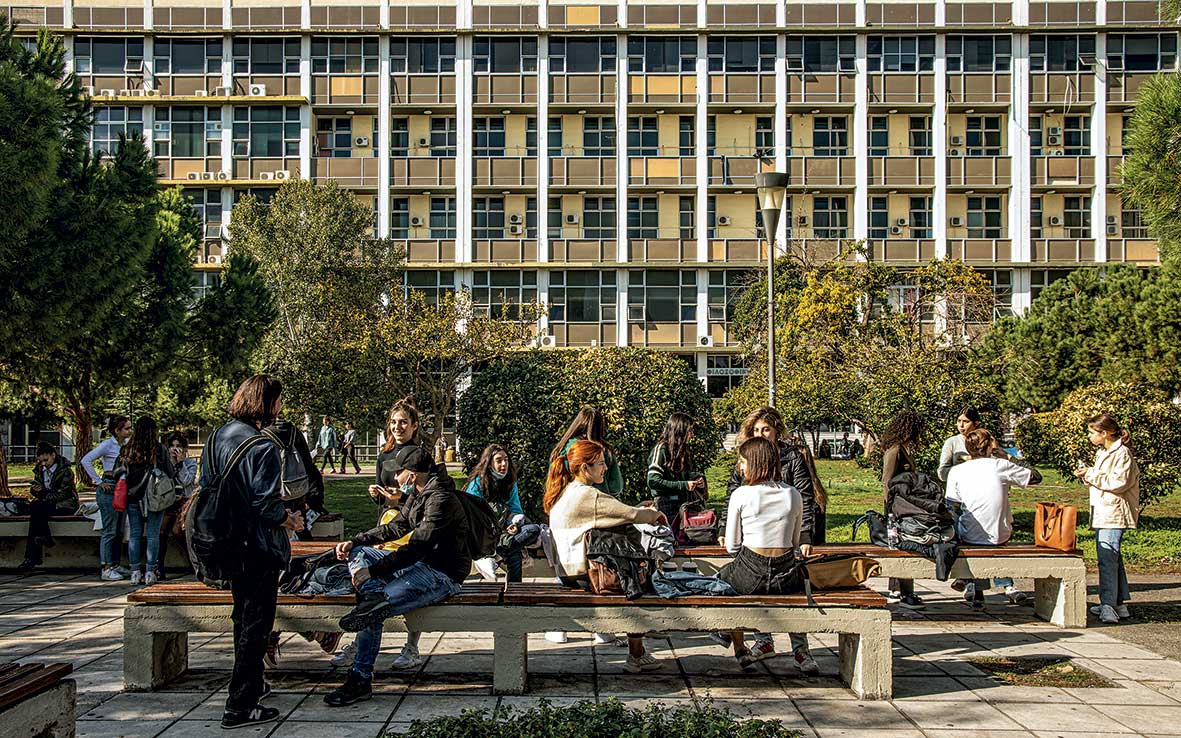No one outside Greece really talks about Greek universities. The country’s higher education institutes are public, their courses are predominantly in Greek and they’re less than a century old, in contrast to many of their European counterparts, which boast roots stretching back to the Middle Ages. That’s not the case, however, with Greek scientists. And I don’t mean Thales of Miletus, Pythagoras or Aristotle. I mean that the ratio of scientists produced by the country today is huge relative to the size of its population. Even though Greeks make up just 0.2 percent of the world’s population, they account for 3 percent of top-ranking scientists, according to the Google Scholar database (Annual Panhellenic Medical Conference, 2015). Most of them, largely as a result of the financial crisis, no longer live in Greece, but they did study at a university here first. Can this phenomenon, therefore, be attributed to the education they received?
The Aristotle University of Thessaloniki (AUTh) was recently thrust into the limelight by Albert Bourla. The chairman and chief executive of Pfizer, the pharma giant that gave the world its first signs of hope in the pandemic with its vaccine against Covid-19, has spoken in glowing terms of the university in his native Thessaloniki.
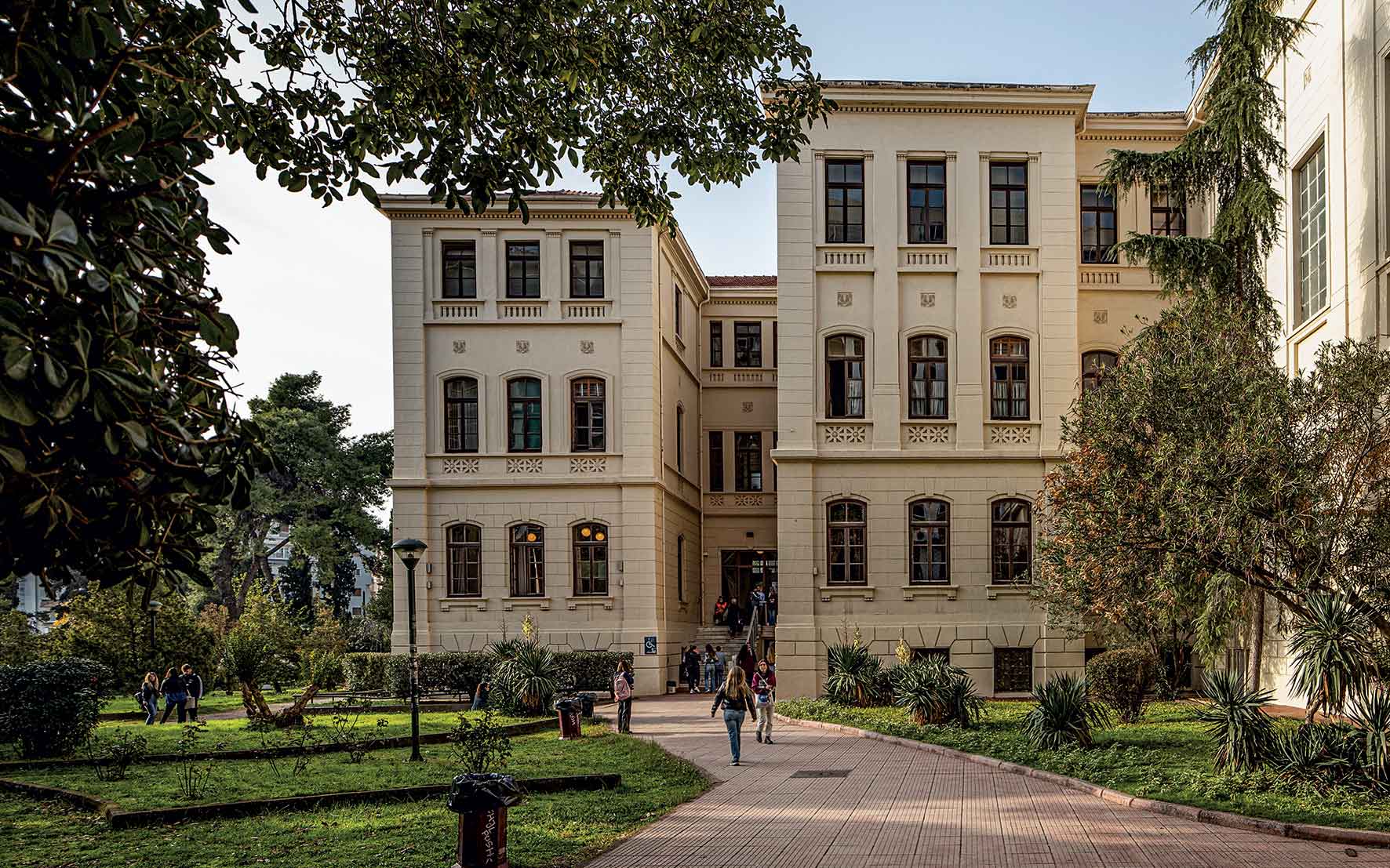
© Olga Deikou
“I was recently assigned the formidable responsibility of leading one of the biggest companies in the world. But I’ve never forgotten where I started and who I owe this to. And the University of Thessaloniki is among them,” Bourla said in his acceptance speech for an honorary doctorate from the institution in December 2019.
The AUTh, which has produced many other respected academics and scientists as well, is the largest university in Greece and in southeastern Europe, both in terms of its active student population and of its schools. With dozens of workshops, laboratories and clinics, it also boasts the greatest breadth of disciplines in the country. Candidates have to excel in the country’s annual nationwide university exams, a transparent and merit-based system in a country that has been accused of the opposite – we all remember the “Greek statistics” fiasco – and that allows the best of each year’s student crop to secure a spot at the school of their choice, from medicine to archaeology.
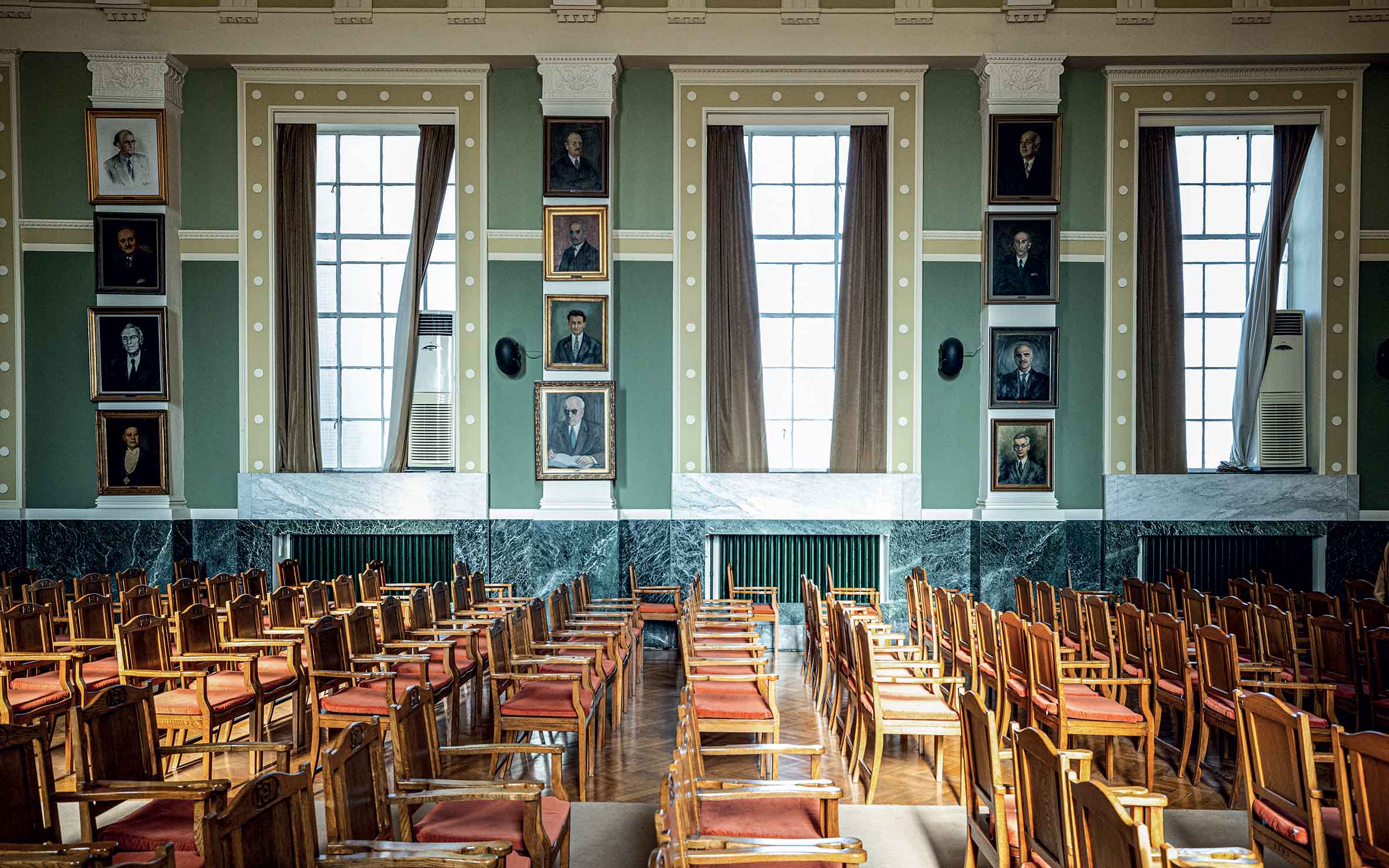
© Olga Deikou
Pockets of excellence
It’s very early in the morning as I walk along the coastal road from the port to the AUTh campus. The humid weather has produced a thick fog that gives this northern city an incredible otherworldly atmosphere that only the late renowned filmmaker Theo Angelopoulos managed to capture so vividly on the silver screen. As I reach my destination, the gathering heat clears the sky, and I’m brought back to Greek reality and all its sharp contrasts: aged infrastructure sagging beside shiny new buildings and badly signposted streets leading higgledy-piggledy to cutting-edge science labs and unkempt lecture theaters packed to the rafters with students. These are some of the very real conditions that spur many aspiring Greek scientists to think outside the box to survive (and often to go on to greater things), but also discourage others and saps them of their drive.
I meet Rector Nikos Papaioannou on the seventh floor of the administration building that towers over the sprawling campus. Although the usual career trajectory in Greece would entail moving from Thessaloniki to Athens, he grew up in the capital but has spent his entire university career here, first as a student of veterinary medicine and then as a professor.
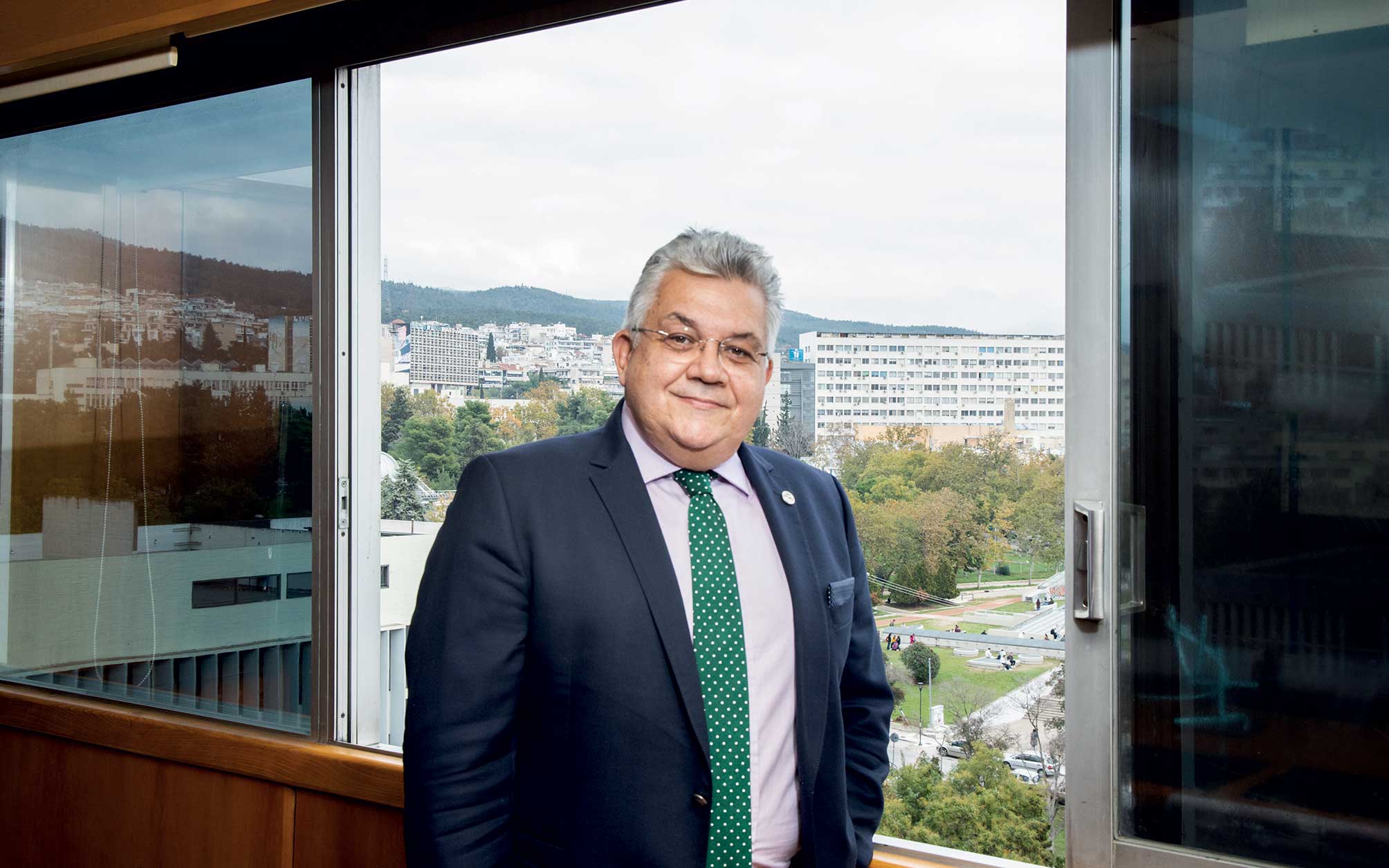
© Olga Deikou
His fondness for the university is apparent. He’s also the director of the Laboratory of Pathological Anatomy at the Department of Veterinary Medicine and continues to teach. “Interaction with each new generation of scientists is what the profession of professor is all about,” he says. It is equally important to shape the young students in an environment that is not devoid of challenges, he adds. “A university is not just a place where knowledge is propagated; it also helps mold a student’s personality and their social skills. This happens through the process of being taught, asking questions and even doubting. A democratic discussion, a democratic rivalry is healthy in the contours of academic behavior.”
He boasts of the high caliber of AUTh graduates and how they go on to postgraduate studies at top international universities and jobs at leading firms. He attributes much of this success to Greek education’s public character, which allows good students a chance at university regardless of their financial situation.
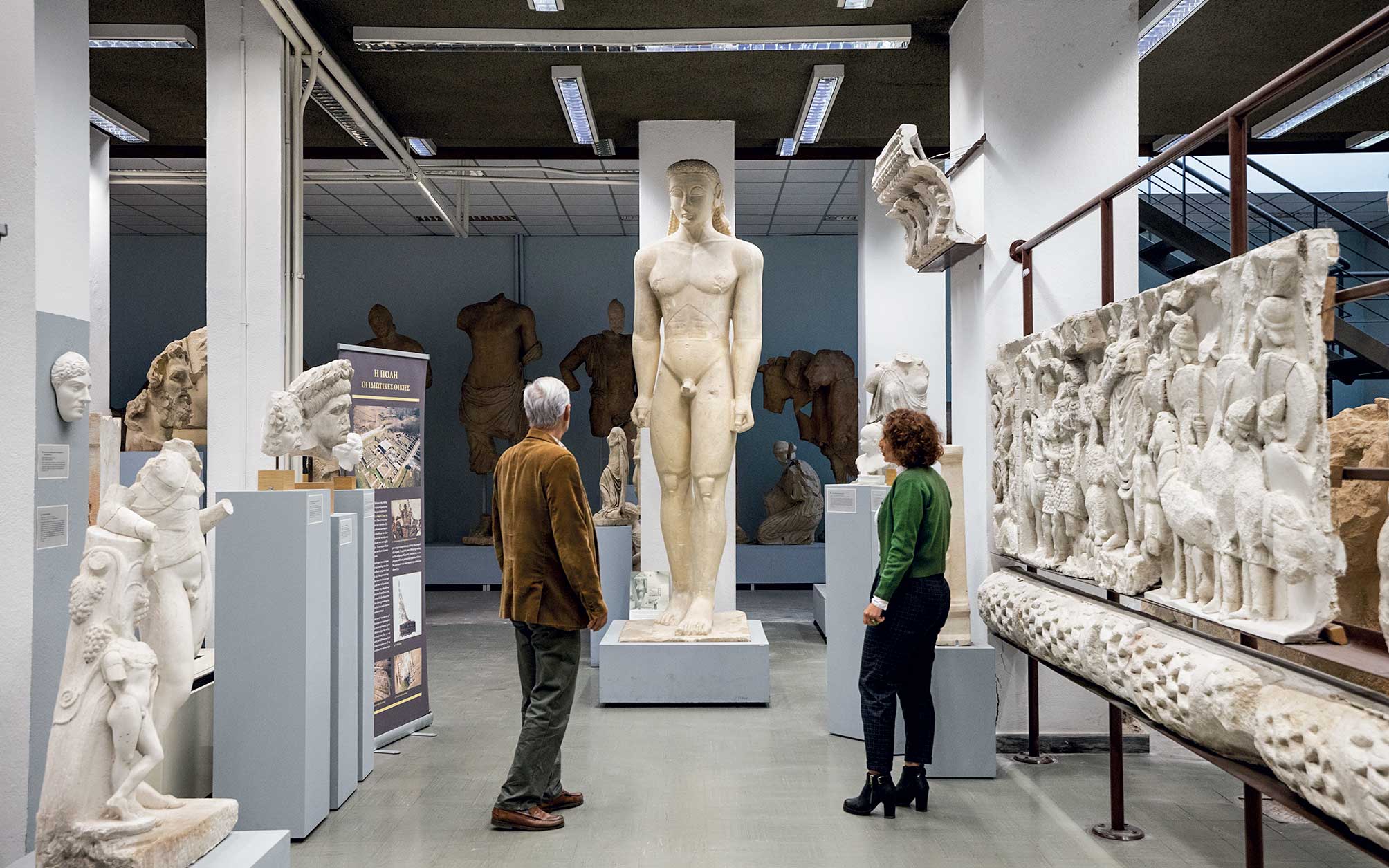
The university’s international rankings confirm what is best explained by George Karagiannidis, a professor of digital communications systems at the AUTh’s Department of Electrical and Computer Engineering. I meet him at the Laboratory of Wireless Communications and Information Processing (WCIP), where a team is working on cutting-edge research in 5G and 6G wireless communication systems, wireless charging, and communications between biomedical applications. Karagiannidis and Athens University Professor and Rector Thanos Dimopoulos are the only Greek scientists to have featured for seven successive years on the list of the world’s most Highly Cited Researchers by Clarivate Analytics (formerly Thomson Reuters).
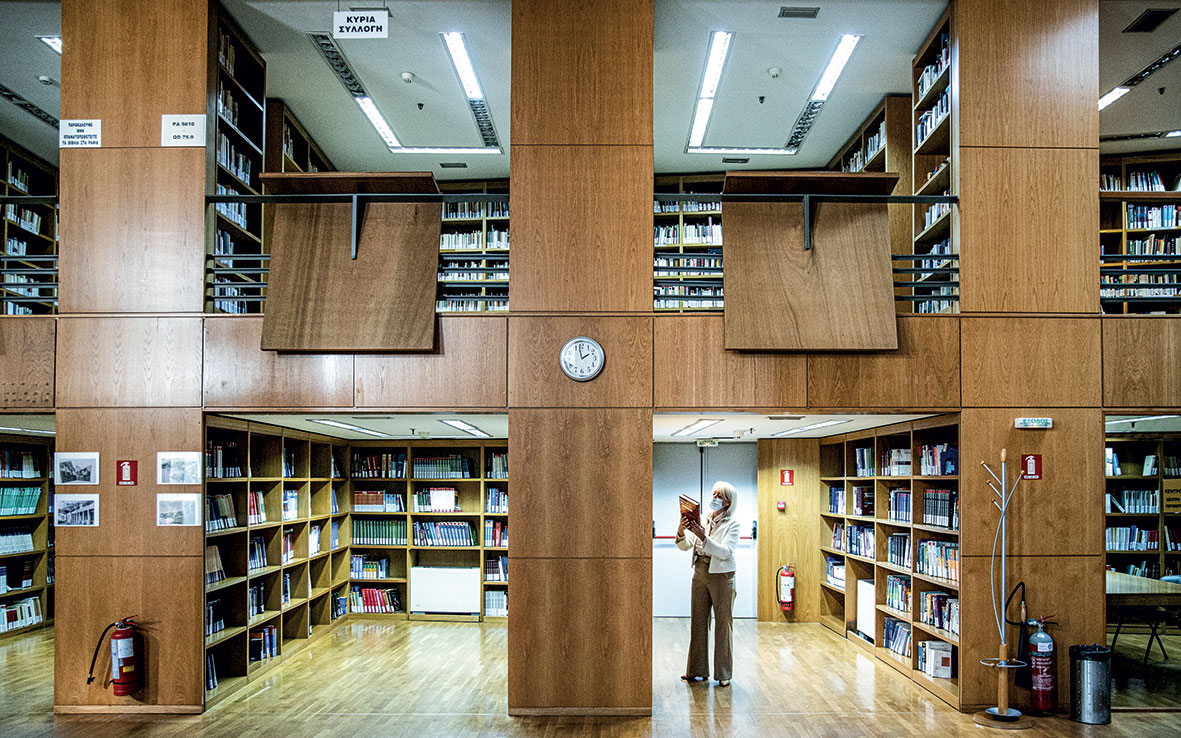
© Olga Deikou
“The AUTh has a very big student population, which makes it hard to achieve a high position in international university ranking, but it’s an entirely public education system that has students of a very high academic caliber and pockets of undisputed international excellence. The teams we put together at the AUTh are based on the principle of interdisciplinarity, which is the cornerstone of research,” he notes. For example, I learn that the university holds the top spot in the ranks of Greek universities and research foundations in the field of computer science and electronics, in the list published by Guide2Research for 2021. In the humanities, too, its department of Classical Studies is 14th in the QS World University Rankings by Subject List published by Quacquarelli Symonds.
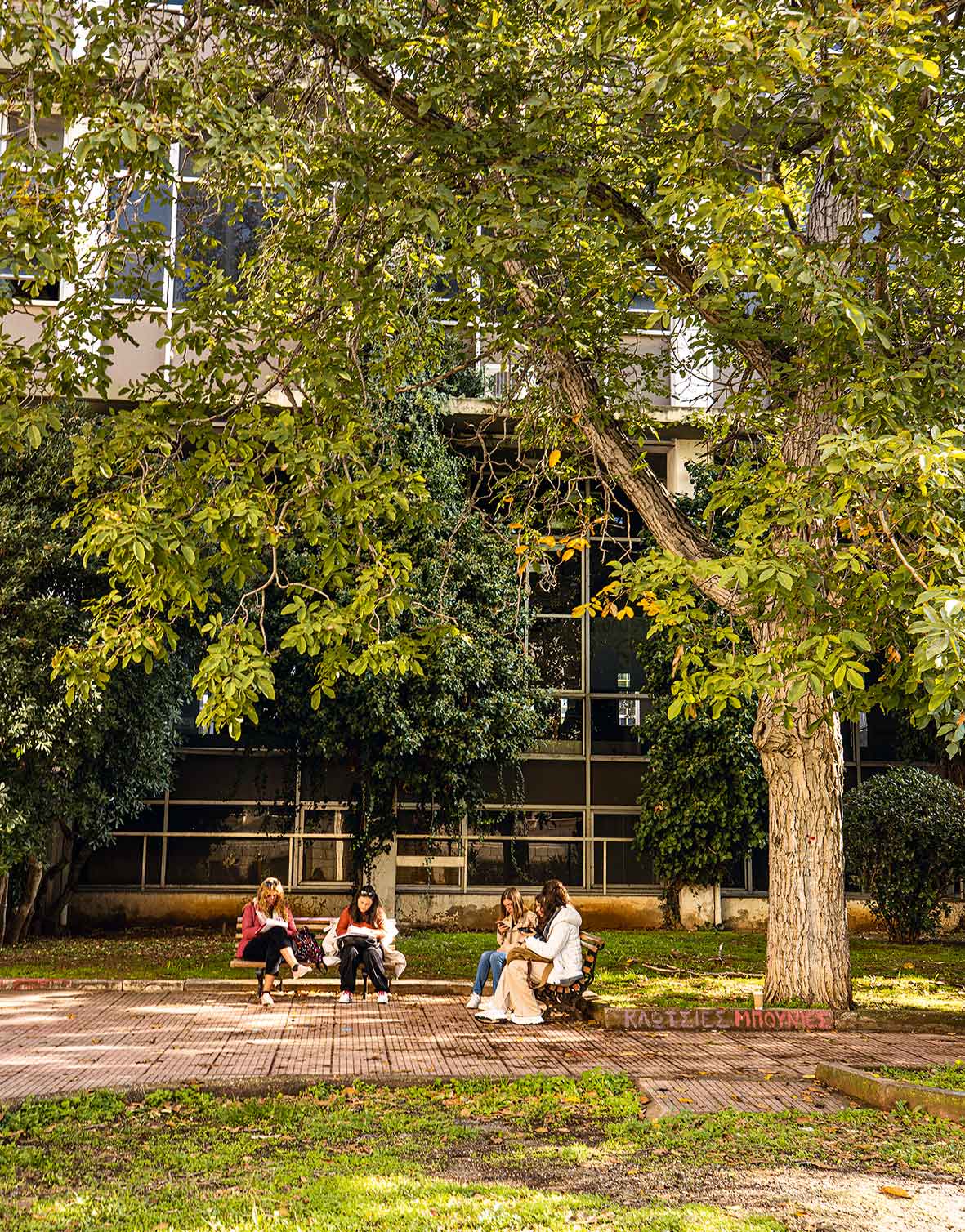
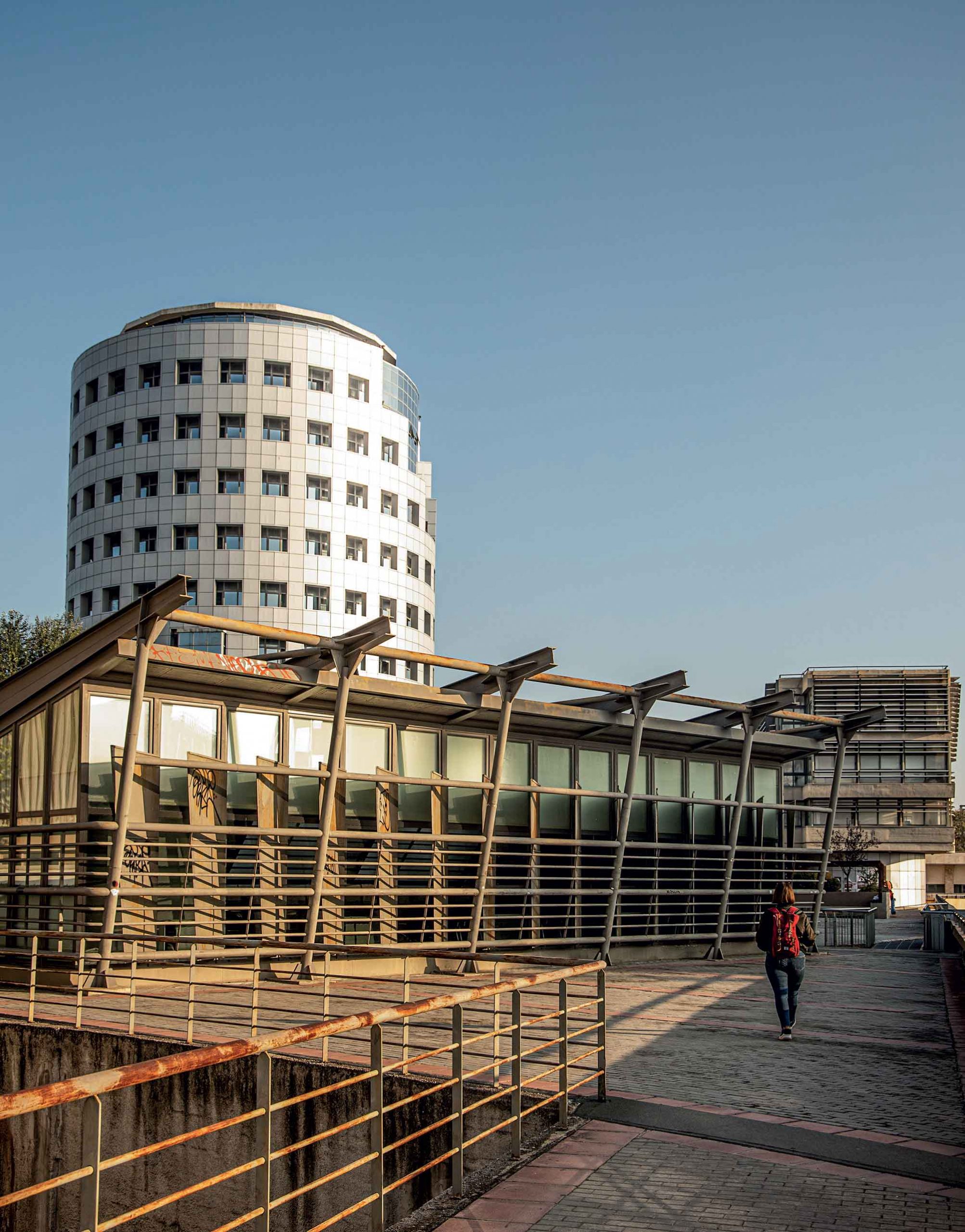
© Olga Deikou
The AUTh is also responsible for one of the biggest initiatives in Greece for encouraging the greater global outreach of the country’s educational system. Apart from the foreign-language courses organized by many departments every year and a very strong presence in the Erasmus program (it had 700 foreign students last year), as well as several English-language postgraduate programs that are mainly chosen by Greek students, the university just launched a degree program in English at the School of Medicine for foreign students only. For the first time, 60 students from 31 countries are studying at the AUTh – and the benefits are mutual.
“The advantages for the students are a school with a good reputation, 82 clinics and laboratories where they can study every kind of medical condition, and lower tuition fees compared to other countries,” says the rector. “And for us, the revenues from tuition fees go towards improving the Medical School’s facilities and the students go on to become ambassadors for Greece, propagating the Greek language and culture.”
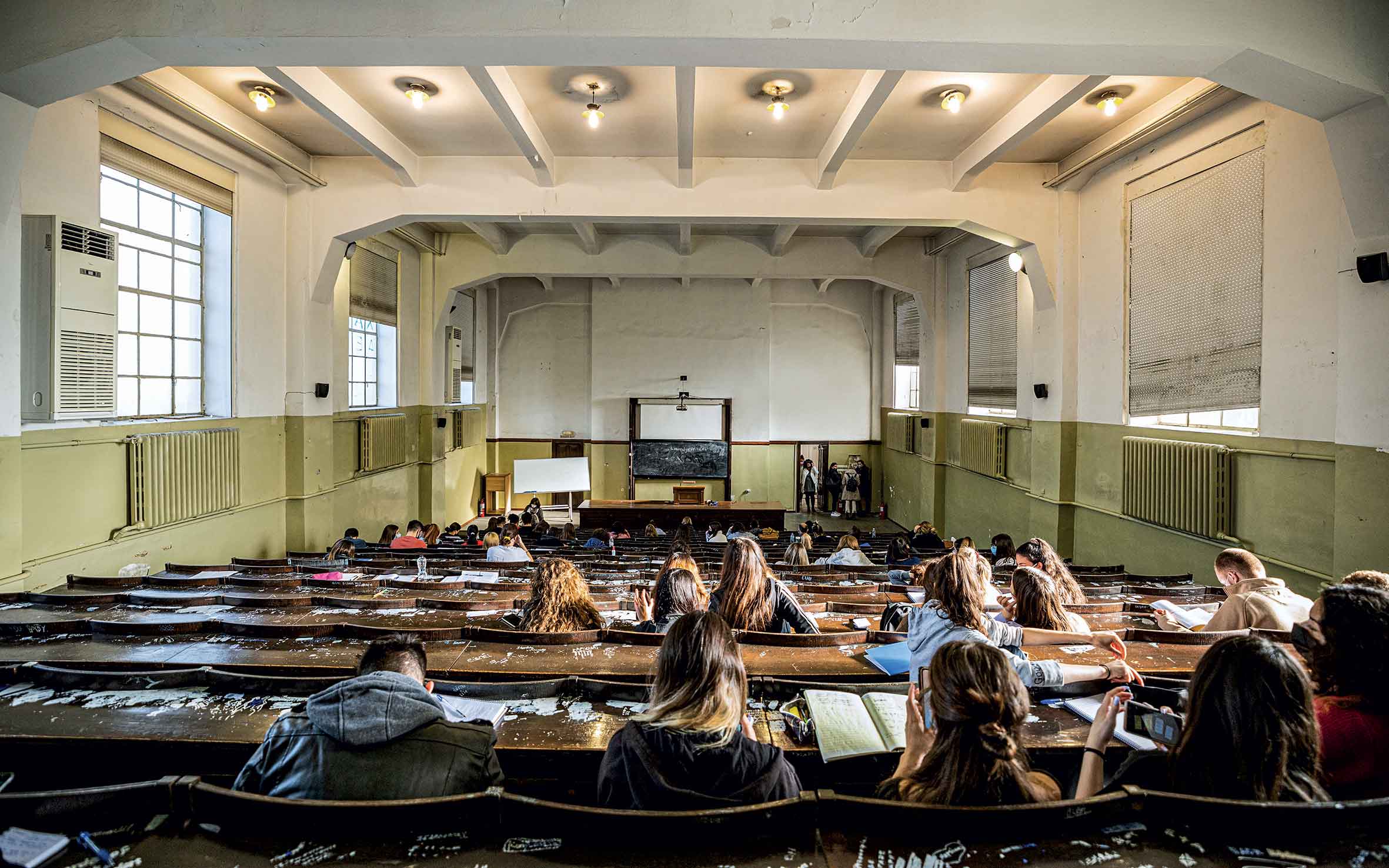
© Olga Deikou
Students: A city lifeline
The AUTh is inextricably connected to the city. “The wealth of research conducted by members of the academic community does not remain restricted to the campus walls but reaches society and the economy with the participation of the citizens themselves,” says Papaioannou. “Its students, moreover, are a key driver of Thessaloniki’s growth and progress, and the university is the main ‘supplier’ of specialized scientists and researchers for all the international-caliber companies that are active in the city.”
The inauguration of the Pfizer Center for Digital Innovation and its Global Centre for Business Operations and Services marked the most recent addition to a growing innovation hub that already exists in the city and includes the Alexander Innovation Zone, Thess INTEC and Cisco’s Digital Transformation and Digital Skills Center. But in purely economic terms too, research has shown that the AUTh contributes 20.7 million euros to the local economy every year directly and another 198 million or so indirectly.
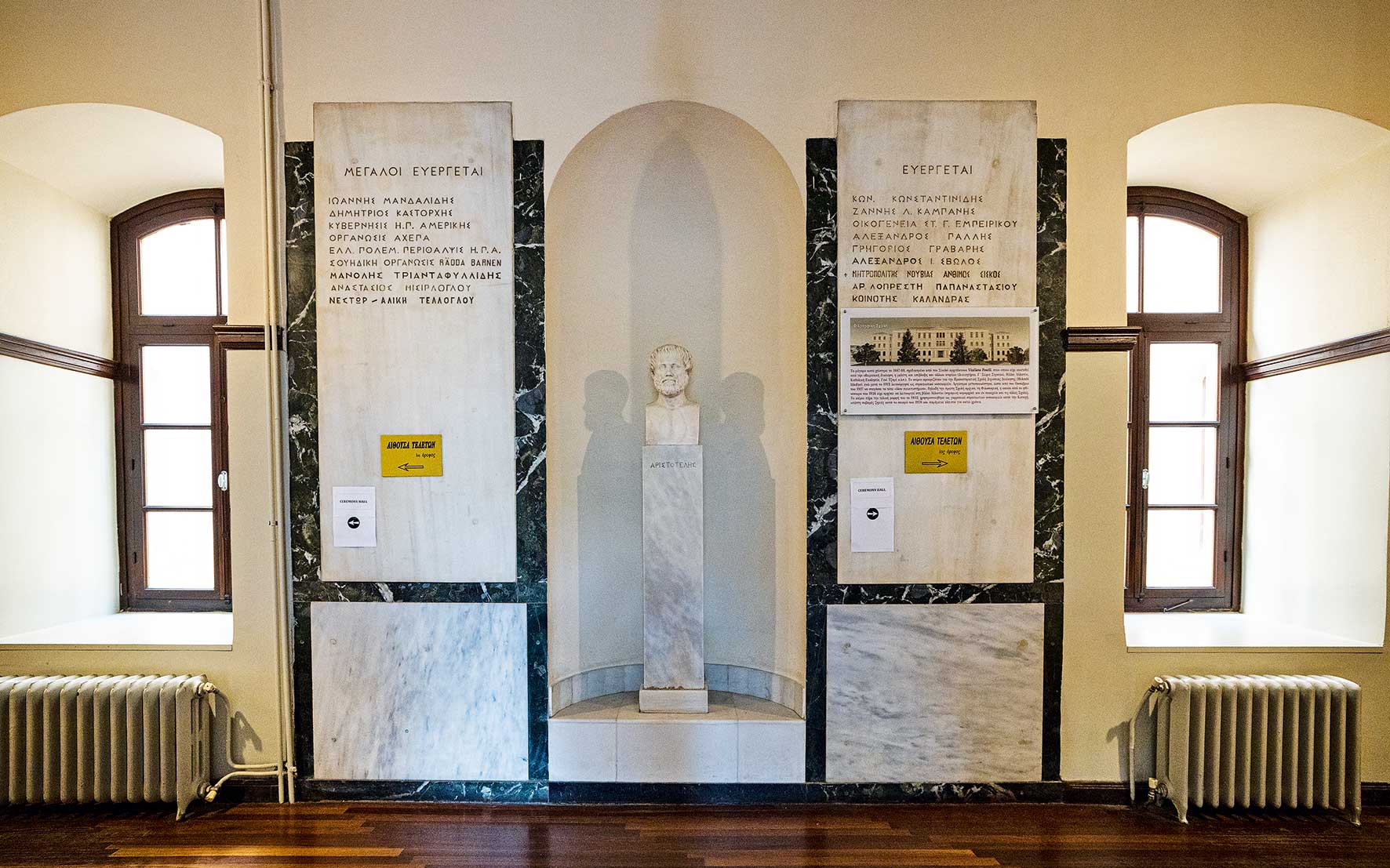
But Thessaloniki itself also holds many advantages for students, be they Greeks, Erasmus exchange students or foreign scholars at the new Medical School department. “We call the city ‘mother’ because young people leaving the family nest for the first time find themselves in a city that’s friendly, with creative groups, student hangouts and everything they could want at hand,” says the rector. “For foreign students too, it is an interesting and multicultural city with a long history, and also a hub from which they can easily travel to Europe, the Balkans and the East.”
In Numbers
With 42 departments and 11 schools, the Aristotle University of Thessaloniki offers more subjects than any other in Greece. It boasts an active student body of some 50,000 undergraduates and postgraduates and has 61 clinics (medicine, dentistry and veterinarian medicine), 295 workshops and 23 study centers. It carried out 6,000 research projects in the five-year period from 2016 to 2020 worth a total of €50-65 million a year, in cooperation with around a thousand international partners. These projects employed 2,753 permanent academic staff and 6,403 associates (including PhD students and postgrads).
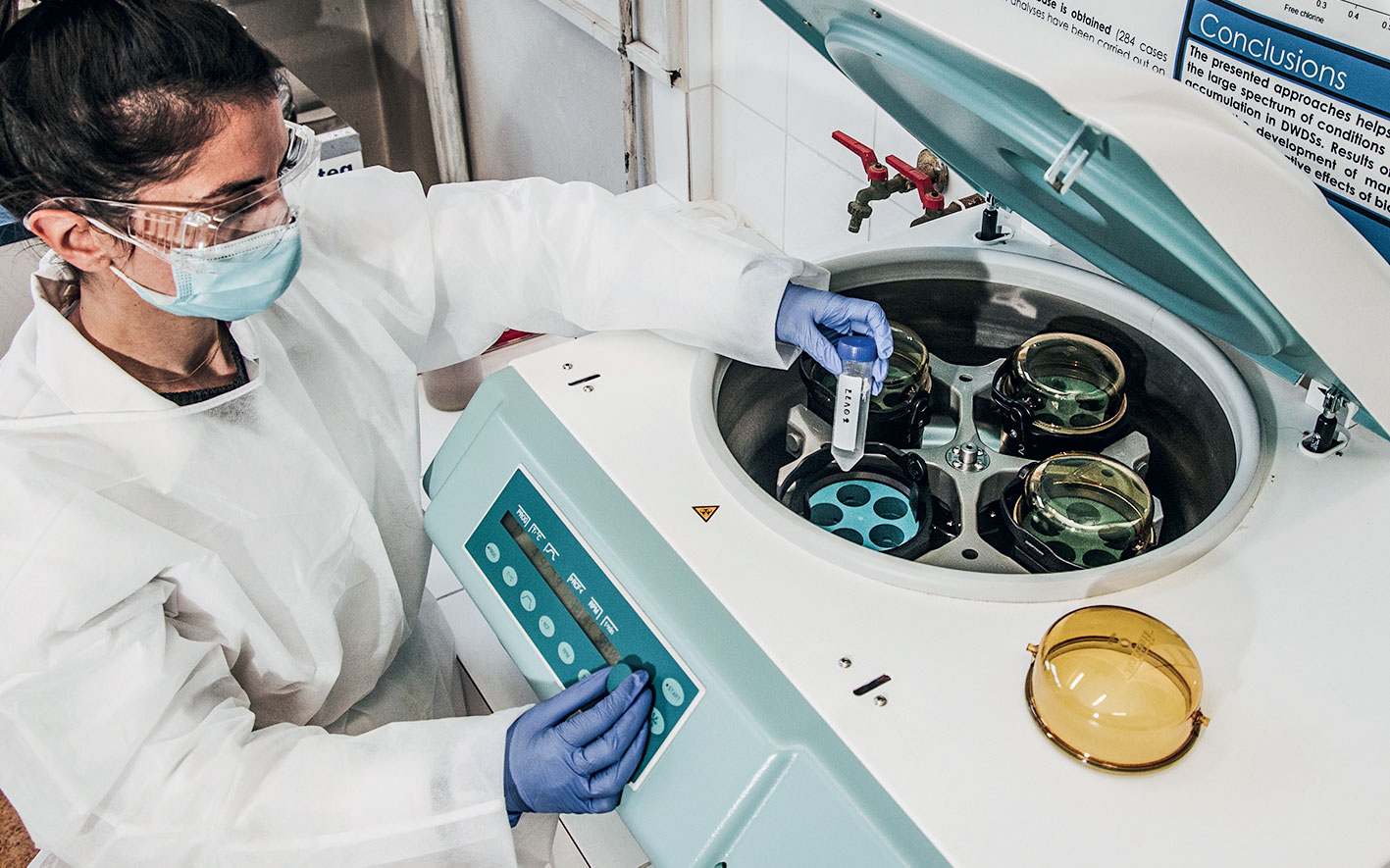
© Olga Deikou
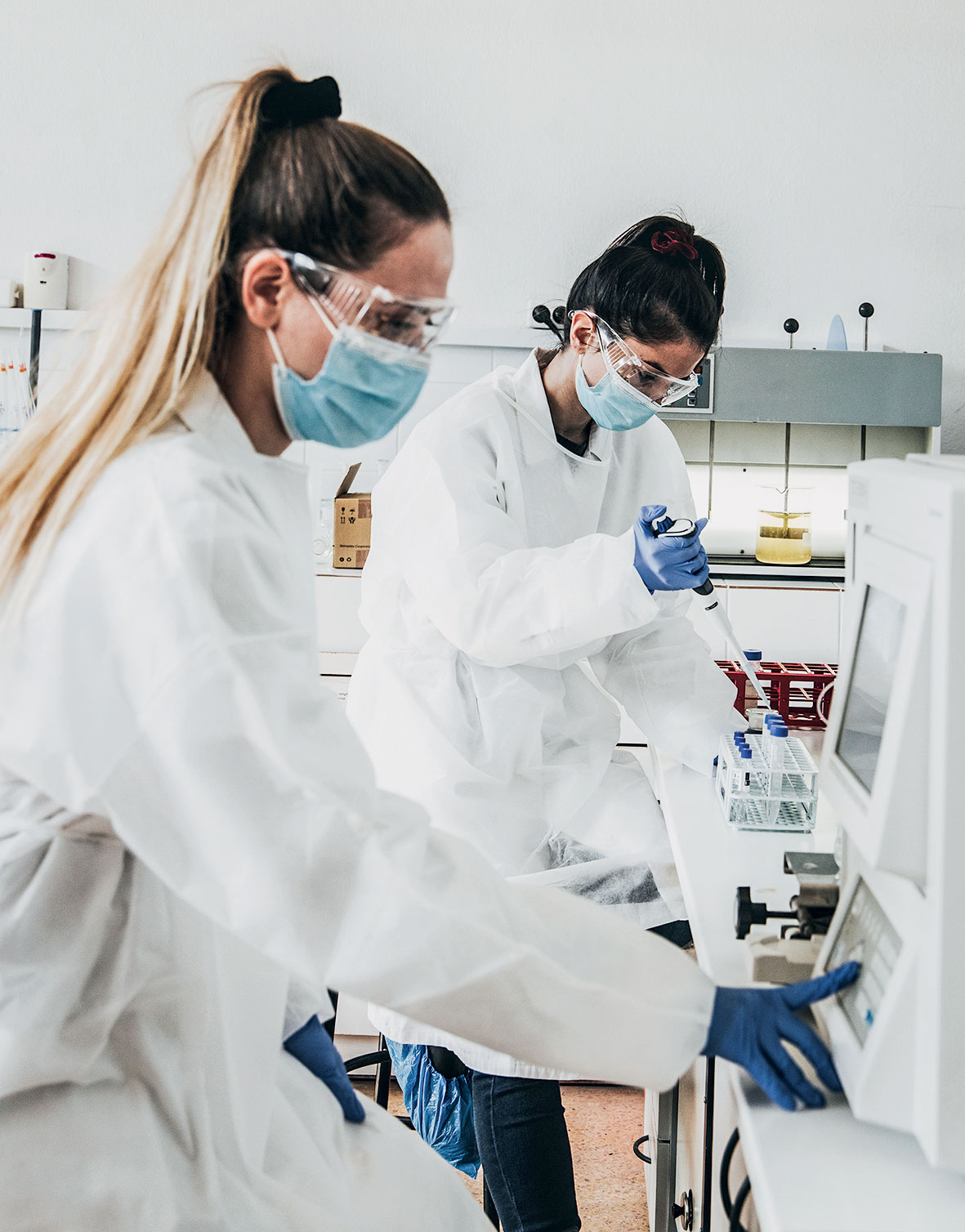
© Olga Deikou
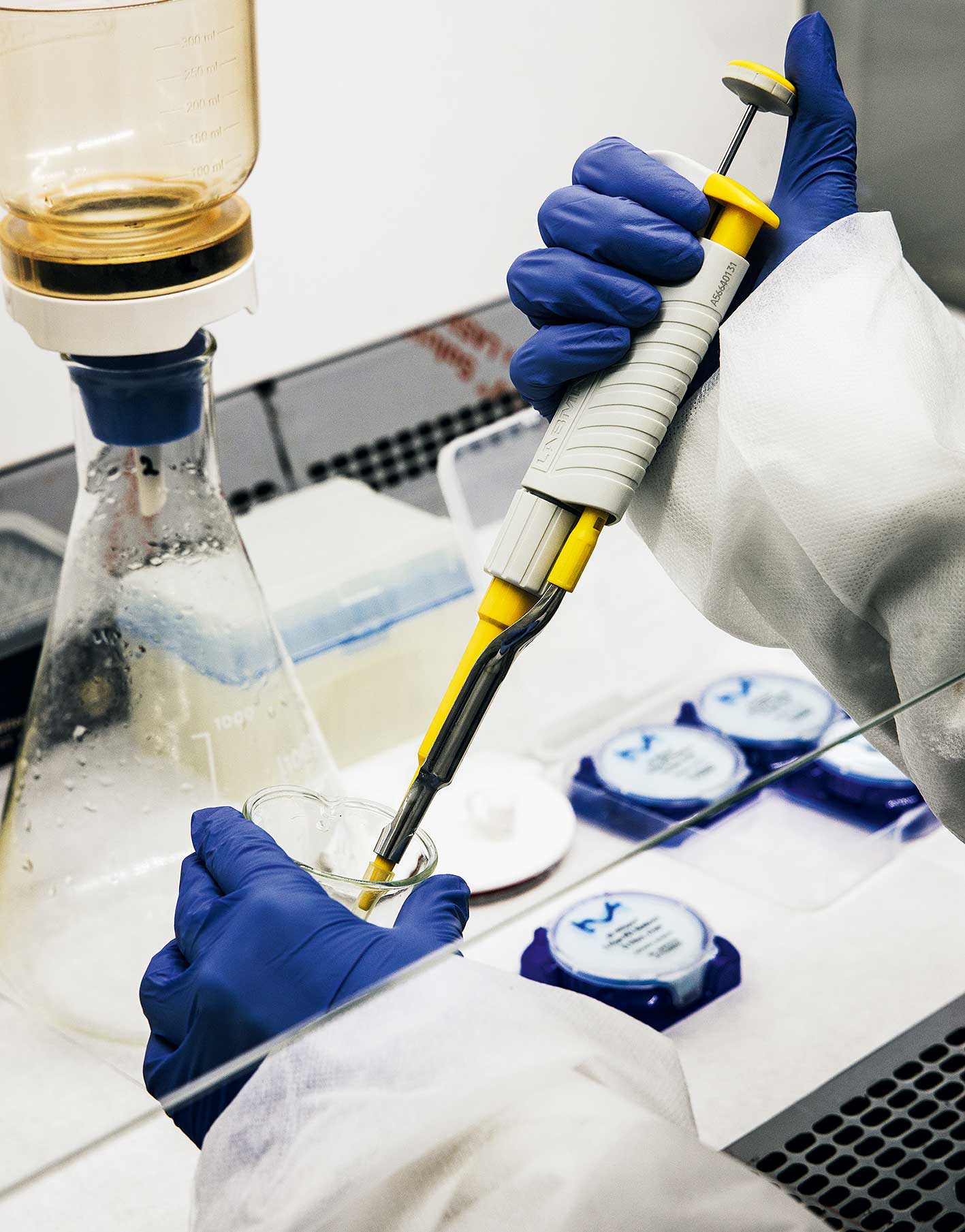
© Olga Deikou
The Researchers
Wastewater Epidemiology Team – The future of the pandemic in numbers
As the academic community threw itself into the battle against the coronavirus pandemic, in March 2020 an interdisciplinary team at the AUTh that specializes in wastewater analysis joined the state effort to monitor the course of the virus and make policy decisions on that basis.
In contrast to the usual practice of individual laboratories producing studies on the presence of the virus in sewage, the AUTh team took a horizontally interdisciplinary approach to the issue. The comprehensive process it devised offers a quantitative assessment of the virus’ presence in the population over time. In other words, it provides a reliable index of the virus’ prevalence in the community. It was a tool that was quickly adopted by other groups of experts in Europe.
The process begins with the collection of samples from the entry point of Thessaloniki’s sewage treatment plant, carried out in cooperation with the Thessaloniki Water and Sewerage Company (EYATH), the Regional Authority of Central Macedonia and the National Organization of Public Health (EODY).
The samples then go to a team of environmental engineering technologists who conduct a series of measurements on their environmental parameters. Chemical engineers take over next, with more analyses aimed at identifying any obstacles like other substances that may stand in the way of measuring the actual presence of the virus. Then the presence of the virus is measured and quantified by a team of molecular biologists and virologists. Last but not least, the findings are handed over to a team of epidemiologists who compare and assess the measurements. The entire team is helped by experts who specialize in the development of theoretical physiochemical models for rationalizing measurements on the basis of the wastewater’s qualitative characteristics.
The AUTh’s wastewater epidemiology team is run by its rector, Nikos Papaioannou, and staffed by scientists from the laboratories and clinics of the departments of Medicine, Chemistry, Veterinary Medicine, Pharmacy, Biology, Civil Engineering, and Spatial Planning and Development.
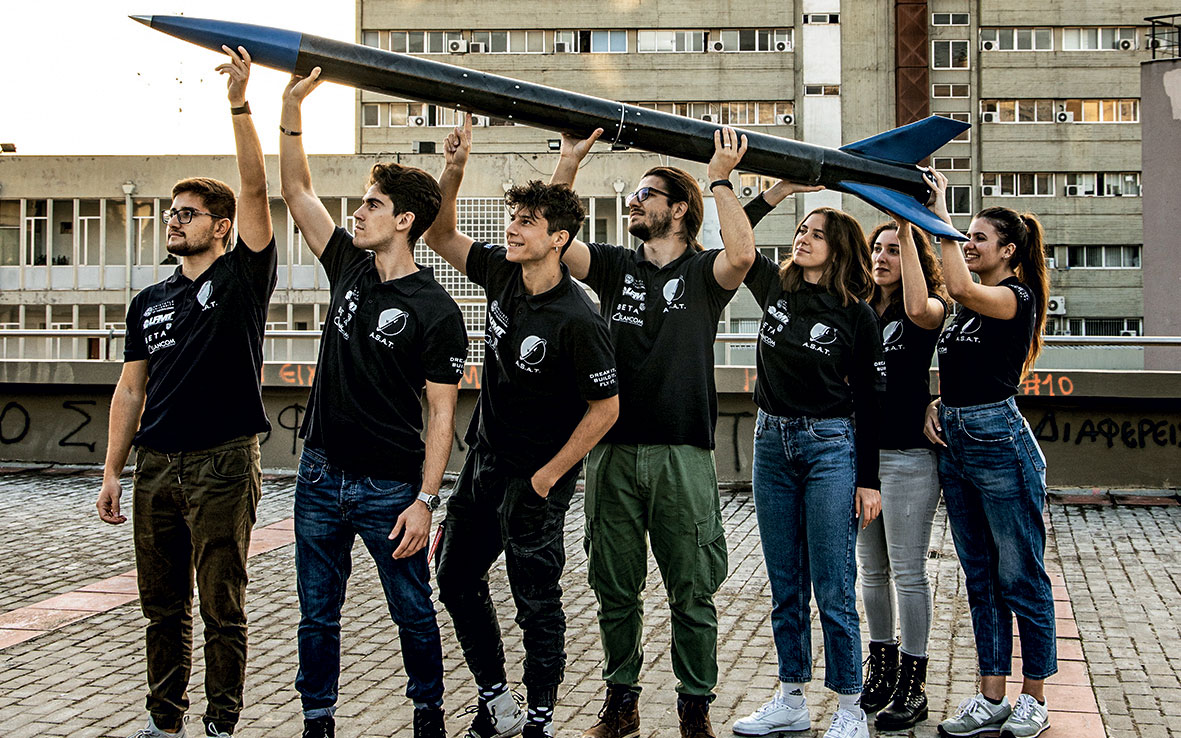
© Olga Deikou
Aristotle Space & Aeronautics Team (ASAT) – Flights to the future
The AUTh’s first space science team was developed in 2015 by a group of 12 ambitious students from its School of Mechanical Engineering. The team has successfully built an unmanned aerial vehicle that took part in the 2017 Air Cargo Challenge, an international student competition. ASAT went on to expand in size and areas of specialization so that it now comprises 75 students from the departments of Mechanical Engineering, Chemical Engineering, Electrical Engineering, Physics, Civil Engineering, Architecture and even Journalism. It’s active in the field of aerospace science, as well as in the development of high-powered unmanned rockets. The team operates under the auspices of the Laboratory of Fluid Mechanics and Turbomachinery at the Department of Mechanical Engineering and, meanwhile, has managed to become entirely self-funded thanks to sponsorship from a plethora of private companies.
The team achieved a first this year, launching its high-powered Selene in the European Rocketry Challenge, while it also took part in the Spaceport America Cup 2021. Selene also plays a part in a research experiment: by releasing a payload at 10,000 ft, it can measure the radioactive concentration in the atmosphere from apogee to landing. The team’s next goals include the development of the high-powered Andromeda rocket and competing with it at the Spaceport America Cup 2022 in the US, as well as the Aeolus drone, which is slated for entry at the Air Cargo Challenge 2022 in Munich. Phoenix is another project that’s under development, an autonomous aerial vehicle that runs entirely on solar energy, has a 24-hour flight span and can be used for locating wildfire hazards.
Info
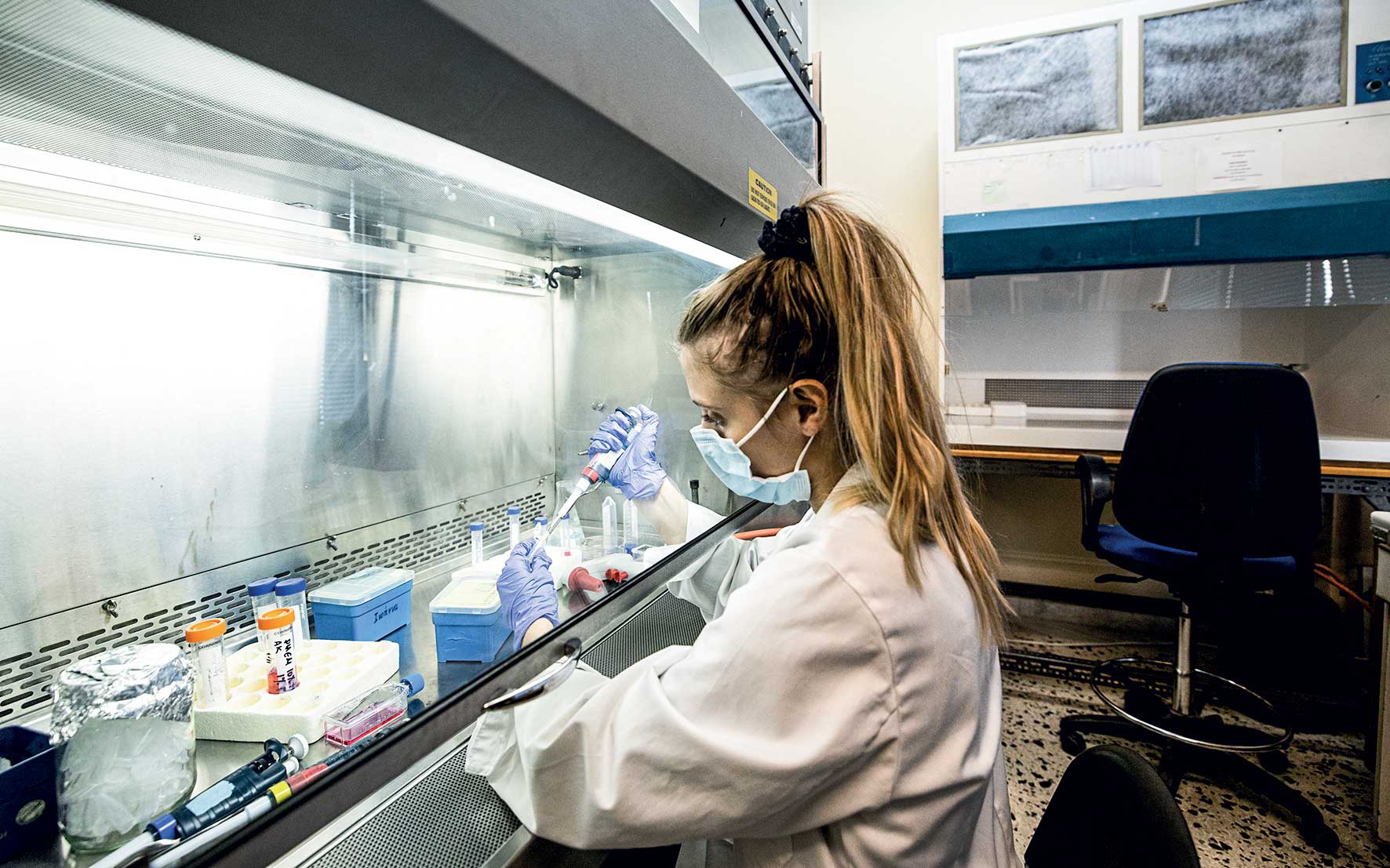
© Olga Deikou
IGEM Thessaloniki Team – Investing in prevention
The laboratories of the Department of Pharmaceutical Technology have been busy this past year with undergraduates working tirelessly on an ambitious project to diagnose pancreatic cancer in its early stages. The 11 members of the team working on the project specialize in the fields of biology, physics, information technology, electrical and computer engineering, molecular biology and genetics, and are working in cooperation with their scientific supervisor, Ioannis Vizirianakis, an associate professor of pharmacology.
The team aspires to develop a molecular diagnostic tool that will identify first and second stage adenocarcinoma in the pancreas with a simple urine test. If successful, the team will have made a significant breakthrough as pancreatic cancer is largely asymptomatic in its early stages and the majority of patients are not diagnosed until stage four, when the cancer may have spread and the chances of successful treatment and survival are much lower. It is a method that can be applied by diagnostic labs easily, quickly and cheaply, by analyzing urine samples from older people and people who are at risk of the disease, such as diabetics.
The team has already received two awards for the idea and its impact, from the Alexander Innovation Zone and the iGEM organization, respectively. In November 2021, it also received the gold medal at the prestigious International Synthetic Biology Competition organized by the iGEM Foundation, an independent, not-for-profit organization created at the initiative of MIT and dedicated to the evolution of synthetic biology.
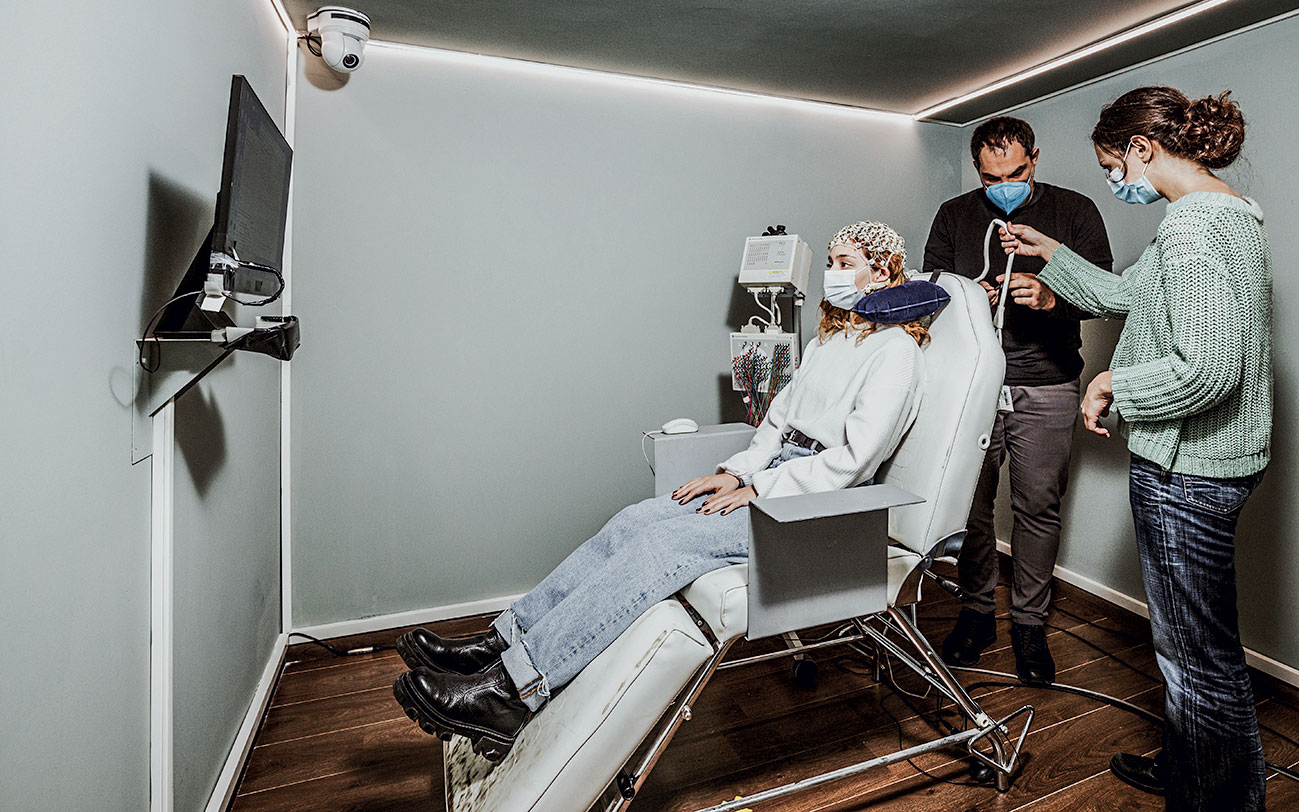
© Olga Deikou
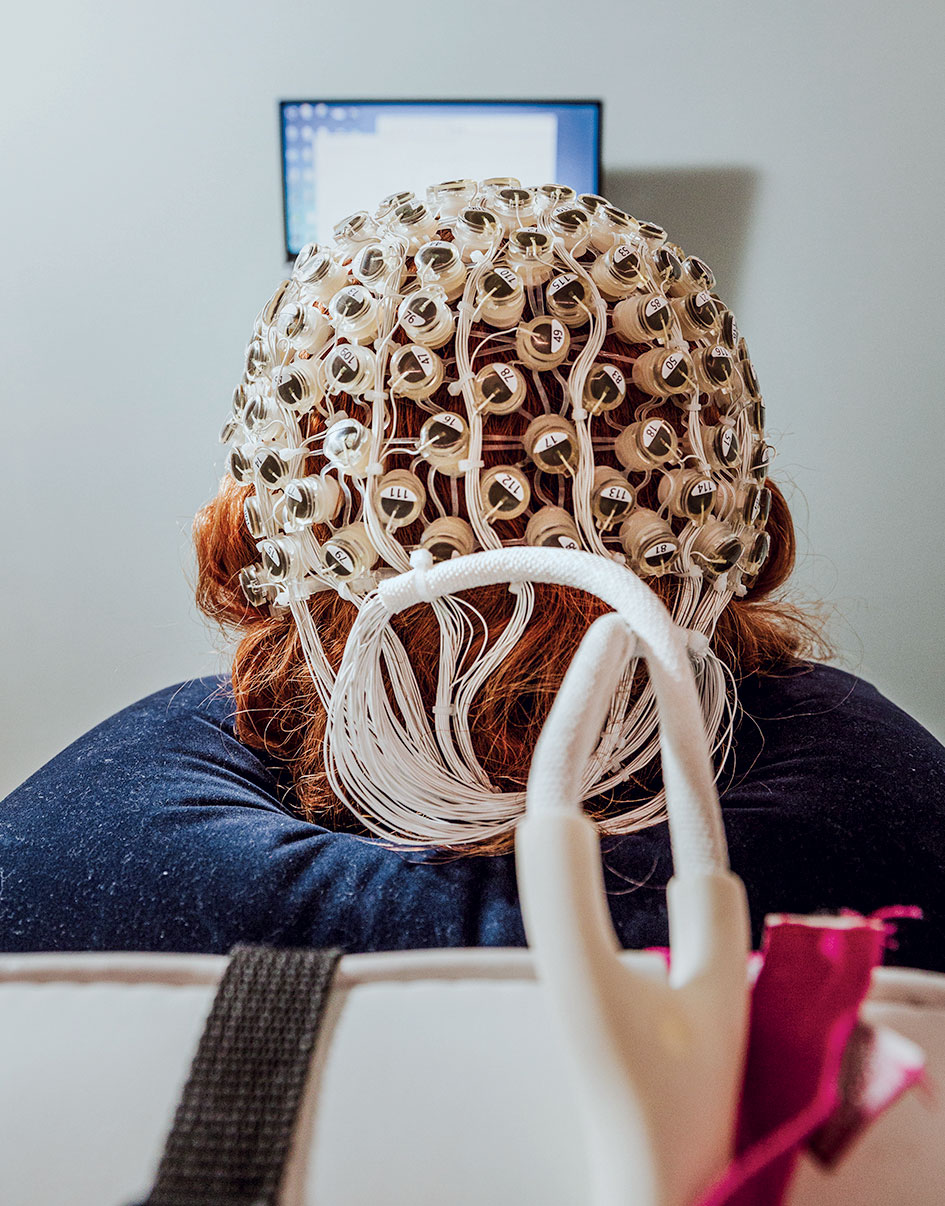
© Olga Deikou
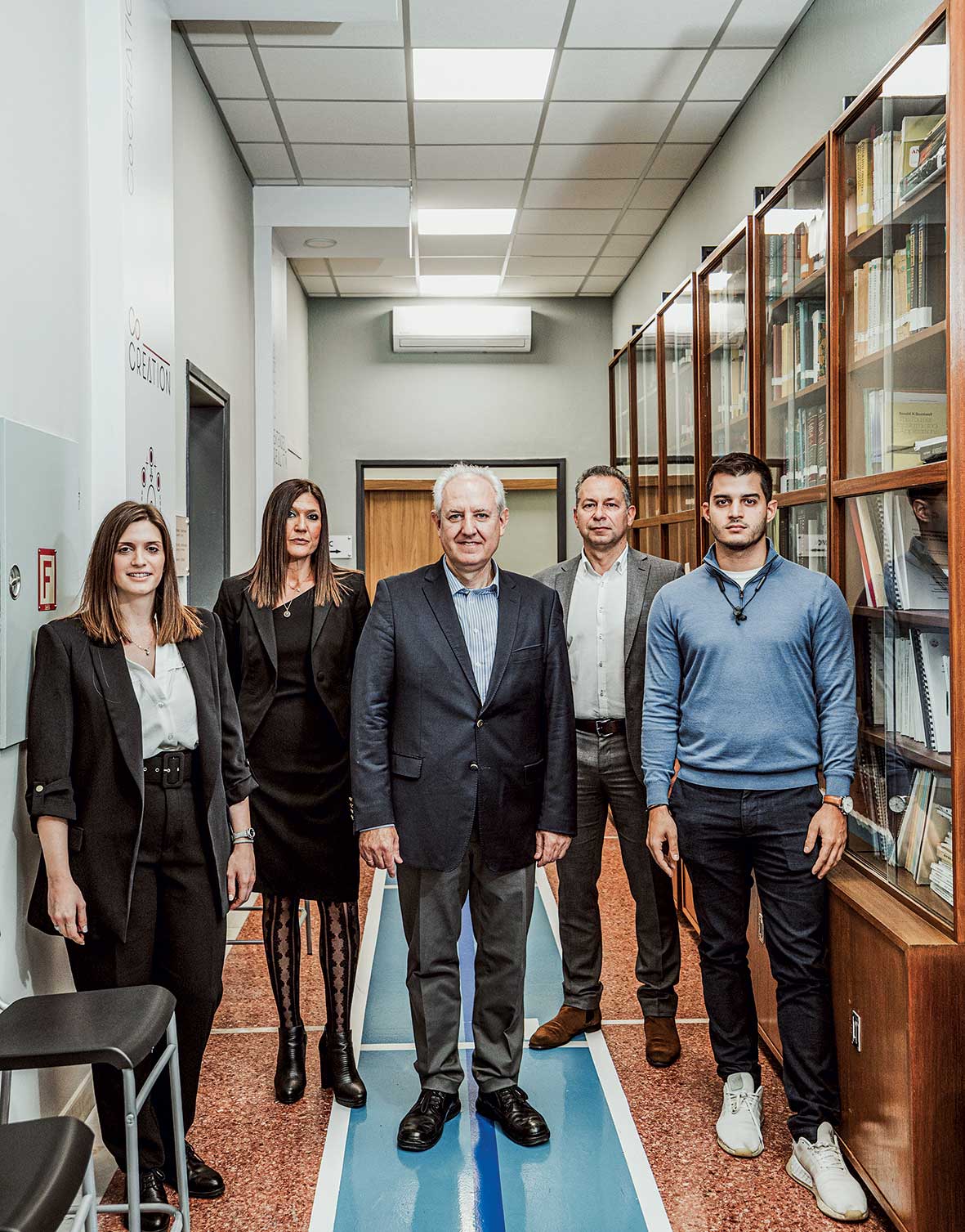
© Olga Deikou
Medical Physics & Digital Innovation Team – Connecting science and people
The Medical School’s multidisciplinary laboratory is a vibrant hive that designs, develops and evaluates technological systems and innovative methodologies aimed at assisting the day-to-day lives of vulnerable groups, improving patients’ health and quality of life, and bolstering the training of health professionals. The lab is conducting more than 30 research programs and relies on volunteers from the community.
The Neuroscience of Cognition and Affection group is working on experiments whereby volunteers wear caps with electrodes attached to devices that analyze different brain functions (such as speech centers or areas associated with the perception of music) and the connectivity of different areas, or pathways. Then, specially designed software can help offset defects and improve overall mental and physical health.
Right next door, a room has been turned into a living lab, meaning a space where subjects are studied in real conditions. Volunteers who have mobility problems and/or are elderly are observed as they go about their day-to-day activities here so that the scientists can gather physical and behavioral data that will help them develop digital tools to improve their quality of life. These include, for example, a device that detects the presence of an elderly person and guides them, either around the space or through interactions, as well as a virtual coaching system that does things such as reminding elderly people to take an umbrella when it’s raining or telling them how to cook a simple meal.
Research is also focused on developing a toolbox of interactive virtual applications for medical training. It will, for example, allow doctors to “touch” the human body realistically, to participate in sessions designed to improve empathy and patient management, and even create escape rooms where doctors will need to solve medical conundrums to free themselves. End-stage patients also take part in experiential interventions designed to help them relax and to improve their quality of life when they’re in palliative care. Special applications that make daily chores like vacuuming easier are also being developed for chronic pain patients.
The laboratory’s director and supervisor, Professor Panagiotis Bamidis, believes in research that starts at the behest of the local community. “Our vision is to… turn our city into a living lab where we can apply activities and simulations to help improve day-to-day life,” he says.

